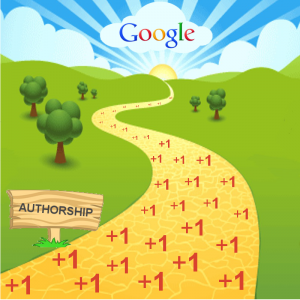Since its release of the groundbreaking PageRank algorithm in the late nineties, Google has been constantly at the forefront of search engine technology and implementing newer search factors such as social signals. This innovation became the golden standard with search engine webpage rankings, and it also made Google the undisputed leader in web searches.
But not long ago, the algorithm underwent a major overhaul. Though PageRank incorporated complex calculations when computing for a webpage’s rankings, the system could be easily “gamed” by black hat SEO practitioners. This resulted in a lot of low quality websites getting their way into the top spots of SERPs and burying pages with authentic content into obscurity.
So what changed?
Google Renovation: Takeover of Social Signals
Of course people want these kinds of websites weeded out. The past couple of years have seen the Google Search Engine constantly making changes and updates to their algorithm, penalizing those who practiced black-hat SEO techniques (and also webpages that are deemed to be “over-optimized”), thereby making SERPs reliable again. Also, they introduced another ranking factor into the mix – “social signals“.
In the Web 2.0 era, social networks like Facebook and Twitter enjoyed immense popularity. For example, Facebook has nearly one billion active users, a number that other online communities can only dream of.
Google harnessed these networks (or more accurately, the people who are using these social networks) to influence how SERPs are laid out. Every Like, Share, Tweet, and +1 can now be considered as a potential vote of trust that should help webmasters get their content onto the top places of Google search rankings.
The Ongoing Debate: Does Google Really Use Social Signals As A Ranking Factor?
People have been talking about this issue ever since Google announced that they have already started incorporating social signals into their search algorithm a couple of years ago. Eric Schmidt himself (aka the current executive chairman of Google) has even confirmed that they DO use the data that they lift from social networking to compute for rankings.
“The social signal, the people you ‘hang with’ is actually a ranking signal” – Eric Schmidt, LeWeb 2011 (LeWeb is Europe’s largest annual tech conference).
Some are skeptical though. People are still wondering if these signals really do have a lasting effect on search engine rankings. Some point out that even though there’s a huge correlation between the number of social signals and a webpage’s ranking (numerous studies made by independent web researchers have already proven this fact), this kind of correlation does not always mean causation.
And in some ways, they are quite right. The public can never know how exactly social signals affect and influence search rankings (i.e. how much weight are given to social signals versus other ranking factors).
Since the concept of social signals is relatively new compared to other more “established” factors like backlinks, we can expect that the debates about this topic will rage on for a while.
So Should You Disregard the Power of Social Signals?
Of course not. The figures and positive results can’t be shrugged off easily. A lot of people have already spoken up and their voices are overwhelming. If you want to make the most out of your social media marketing campaign, then going for social signals is a great strategy.
Matt Cutts, another Google associate, has also given his opinion about the subject in a web interview. He confirmed that Google not only takes into account the number of social signals that a webpage has produced, but also assigns a different weight to each one, making one social signal more important than another.
And there’s a reason behind this. Social signals, like other ranking factors can also be gamed. If there are link farms, there’s also an underground market for likes and tweets also. That’s why Google also takes into account the Authorship of a user.
So what can Google Authorship do for you?
Case Number One: +1s Semantically Take Into Account User Circles First
If you are logged in into your Google+ account, recommendations and +1s from your friends and contacts will be featured prominently in your web searches. Since these people have already earned your trust, their recommendations will be given more weight over others.
Case Number Two: +1 Social Signals Don’t Come Cheap and Easy
Social signals that come from people who have already established themselves online (thought leaders and people who have a strong online presence) have more of an impact compared to a like or tweet from your average Internet user. Buying social signals won’t work if you haven’t built a concrete and active profile first on Google+. If you noticed, most “authoritative” Google+ profiles would appear on the first SERPs whenever you conduct a search, and it’s not because they have a lot of Facebook likes or Twitter tweets.
Case Number Three: +1s Show Reputation and Credibility With Google Authorship
People are more likely to click on a search result if they can see the author’s picture on it. Displaying authorship information is a great way to gain people’s trust in a glance. Ever since Google+ was launched, search pundits have constantly advocated for building a formidable profile on the network. The number and quality of circles that you belong to helps in building up your Google Author Markup profile and reputation. Also, research has shown that social signals from Google+ are weighed more heavily than tweets and likes (since Google has full access to the Google+ database anyway).
*What do you think of Google +1s becoming the leading social signal for Google Authorship.
Popular posts:
- Google Rankings: Just How Much Do Social Signals Come Into Play?
- How do Google+ Social Signals Affect a Website’s Ranking?
- 25 Social Signals Google is Tracking – Factors To Optimize for Higher Search Visibility
- Social Signals Infographic: The Process Of Algorithm Change
- Top Ten Survival Tips For Online Marketers After the Google Panda and Penguin Updates







